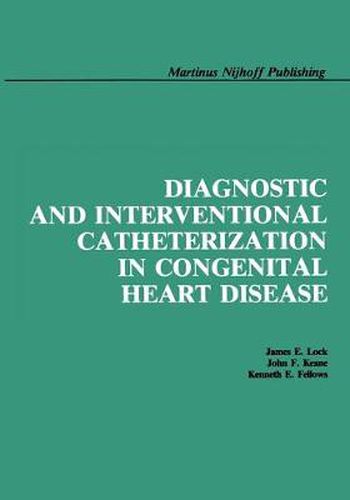Readings Newsletter
Become a Readings Member to make your shopping experience even easier.
Sign in or sign up for free!
You’re not far away from qualifying for FREE standard shipping within Australia
You’ve qualified for FREE standard shipping within Australia
The cart is loading…






This title is printed to order. This book may have been self-published. If so, we cannot guarantee the quality of the content. In the main most books will have gone through the editing process however some may not. We therefore suggest that you be aware of this before ordering this book. If in doubt check either the author or publisher’s details as we are unable to accept any returns unless they are faulty. Please contact us if you have any questions.
During the third quarter of this century, cardiac radiologists (among them W. Rashkind, L. catheterization of the infant, child, or adult with Bargeron, K. Amplatz, C. Mullins, R. White, P. congenital cardiac disease was performed to Lurie, Z. Lababidi, and J. Kan) are responsible establish a general diagnosis and an overall for this revolution. assessment of prognosis. Precision was required The purpose of this book is to consolidate this only for those patients who might be candidates new information, and to place it in the context for surgery; even then the accuracy required by of classical cardiac catheterization techniques, our surgical colleagues was, for the most part, tools, and data. It is not intended to be a com- unassuming. This unambitious role was virtual- plete textbook on all aspects of catheterization: ly abolished, in the last decade, by the introduc- much of the basic information on hemodynamic tion of sophisticated two dimensional echocar- measurements, electrophysiology, and roent- diography and Doppler ultrasonography. When genologic imaging are thoroughly covered else- ultrasound data were combined with the classi- where. Rather, it is intended to provide practical cal clinical tools of auscultation, electrocardiolo- guidelines to both the novice and experienced gy, and chest radiology, it became obvious that cardiologist, and to indicate to noncardiologists an accurate general assessment of cardiac anat- what can be expected from the catheterization omy, physiology, and prognosis could be made laboratory. We have tried, whenever possible, noninvasively in nearly all patients.
$9.00 standard shipping within Australia
FREE standard shipping within Australia for orders over $100.00
Express & International shipping calculated at checkout
This title is printed to order. This book may have been self-published. If so, we cannot guarantee the quality of the content. In the main most books will have gone through the editing process however some may not. We therefore suggest that you be aware of this before ordering this book. If in doubt check either the author or publisher’s details as we are unable to accept any returns unless they are faulty. Please contact us if you have any questions.
During the third quarter of this century, cardiac radiologists (among them W. Rashkind, L. catheterization of the infant, child, or adult with Bargeron, K. Amplatz, C. Mullins, R. White, P. congenital cardiac disease was performed to Lurie, Z. Lababidi, and J. Kan) are responsible establish a general diagnosis and an overall for this revolution. assessment of prognosis. Precision was required The purpose of this book is to consolidate this only for those patients who might be candidates new information, and to place it in the context for surgery; even then the accuracy required by of classical cardiac catheterization techniques, our surgical colleagues was, for the most part, tools, and data. It is not intended to be a com- unassuming. This unambitious role was virtual- plete textbook on all aspects of catheterization: ly abolished, in the last decade, by the introduc- much of the basic information on hemodynamic tion of sophisticated two dimensional echocar- measurements, electrophysiology, and roent- diography and Doppler ultrasonography. When genologic imaging are thoroughly covered else- ultrasound data were combined with the classi- where. Rather, it is intended to provide practical cal clinical tools of auscultation, electrocardiolo- guidelines to both the novice and experienced gy, and chest radiology, it became obvious that cardiologist, and to indicate to noncardiologists an accurate general assessment of cardiac anat- what can be expected from the catheterization omy, physiology, and prognosis could be made laboratory. We have tried, whenever possible, noninvasively in nearly all patients.